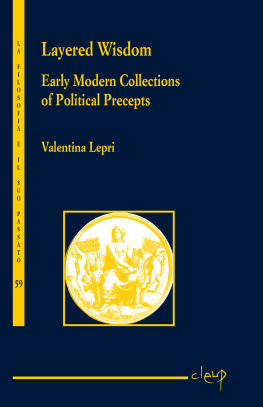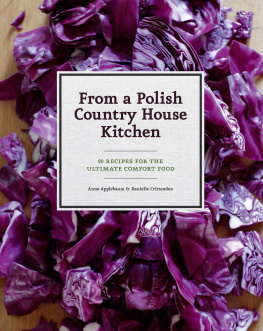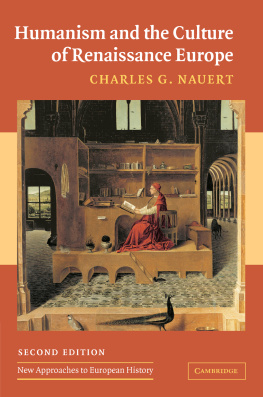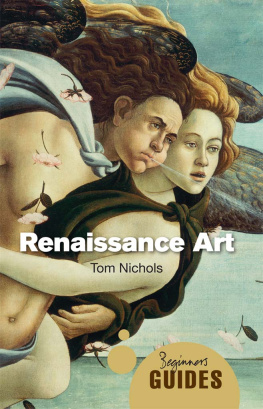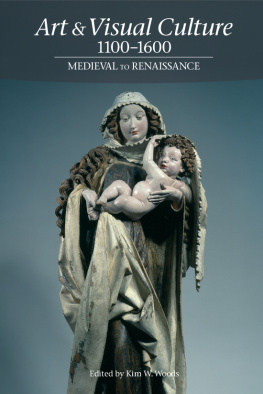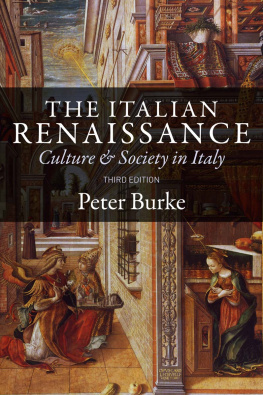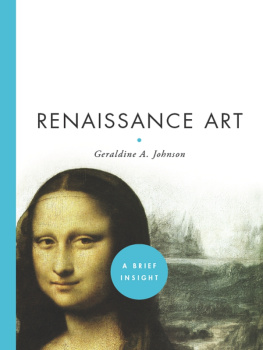Biblioteca di Studi Slavistici
Comitato Scientifico
Giovanna Brogi Bercoff (Direttore), Stefano Bianchini, Marcello Garzaniti (Presidente AIS), Persida Lazarevi, Giovanna Moracci, Monica Perotto
Comitato di redazione
Alberto Alberti, Luca Bernardini, Giovanna Brogi Bercoff, Maria Chiara Ferro, Marcello Garzaniti, Nicoletta Marcialis, Giovanna Moracci, Marcello Piacentini, Donatella Possamai, Giovanna Siedina, Andrea Trovesi
Titoli pubblicati
Nicoletta Marcialis , Introduzione alla lingua paleoslava , 2005
Ettore Gherbezza, Dei delitti e delle pene nella traduzione di Michail M. erbatov, 2007
Gabriele Mazzitelli, Slavica biblioteconomica , 2007
Maria Grazia Bartolini, Giovanna Brogi Bercoff (a cura di), Kiev e Leopoli: il testo culturale , 2007
Maria Bidovec, Raccontare la Slovenia. Narrativit ed echi della cultura popolare in Die Ehre Dess Hertzogthums Crain di J.W. Valvasor , 2008
Maria Cristina Bragone, Alfavitar radi uenija malych detej . Un abbecedario nella Russia del Seicento , 2008
Alberto Alberti, Stefano Garzonio, Nicoletta Marcialis, Bianca Sulpasso (a cura di), Contributi italiani al XIV Congresso Internazionale degli Slavisti (Ohrid, 10- 16 settembre 2008) , 2008
Maria Di Salvo, Giovanna Moracci, Giovanna Siedina (a cura di), Nel mondo degli Slavi. Incontri e dialoghi tra culture. Studi in onore di Giovanna Brogi Bercoff , 2008
Francesca Romoli, Predicatori nelle terre slavo-orientali (XI-XIII sec.). Retorica e strategie comunicative , 2009
Maria Zalambani, Censura, istituzioni e politica letteraria in URSS (1964-1985) , 2009
Maria Chiara Ferro, Santit e agiografia al femminile. Forme letterarie, tipologie e modelli nel mondo slavo orientale (X-XVII sec.) , 2010
Evel Gasparini, Il matriarcato slavo. Antropologia culturale dei Protoslavi , 2010
14. Maria Grazia Bartolini, Introspice mare pectoris tui. Ascendenze neoplatoniche nella produzione dialogica di H.S. Skovoroda (1722-1794) , 2010
13. Alberto Alberti, Ivan Aleksandr (1331-1371). Splendore e tramonto del secondo impero bulgaro , 2010
Paola Pinelli (a cura di), Firenze e Dubrovnik allepoca di Marino Darsa (1508- 1567). Atti della giornata di studi Firenze, 31 gennaio 2009 , 2010
Francesco Caccamo, Pavel Helan, Massimo Tria (a cura di), Primavera di Praga, risveglio europeo , 2011
Maria Di Salvo, Italia, Russia e mondo slavo. Studi filologici e letterari , 2011
Massimo Tria, Karel Teige fra Cecoslovacchia, URSS ed Europa. Avanguardia, utopia e lotta politica , 2012
Marcello Garzaniti, Alberto Alberti, Monica Perotto, Bianca Sulpasso (a cura di), Contributi italiani al XV Congresso Internazionale degli Slavisti (Minsk, 20-27 agosto 2013) , 2013
Persida Lazarevi Di Giacomo, Sanja Roi (a cura di), Cronotopi slavi. Studi in onore di Marija Mitrovic , 2013
Polish culture in the Renaissance
Studies in the arts, humanism and political thought
edited by
Danilo Facca
Valentina Lepri
Firenze University Press
2013
Polish Culture in the Renaissance : Studies in the arts, humanism and political thought / a cura di Danilo Facca, Valentina Lepri. - Firenze : Firenze University Press, 2013.
(Biblioteca di Studi slavistici ; 21)
http://digital.casalini.it/9788866554905
ISBN 978-88-6655-489-9 (print)
ISBN 978-88-6655-490-5 (online PDF)
ISBN 978-88-6655-512-4 (online epub)
Front cover: drawing by Antoni Facca, freely derived from Sebastian Mnster, Cosmographia , 1544
***
Peer Review Process
All publications are submitted to an external refereeing process under the responsibility of the FUP Editorial Board and the Scientific Committees of the individual series. The works published in the FUP catalogue are evaluated and approved by the Editorial Board of the publishing house. For a more detailed description of the refereeing process we refer to the official documents published in the online catalogue of the FUP (http://www.fupress.com).
Firenze University Press Editorial Board
G. Nigro (Co-ordinator), M.T. Bartoli, M. Boddi, R. Casalbuoni, C. Ciappei, R. Del Punta, A. Dolfi, V. Fargion, S. Ferrone, M. Garzaniti, P. Guarnieri, A. Mariani, M. Marini, A. Novelli, M. Verga, A. Zorzi.
2013 Firenze University Press
Universit degli Studi di Firenze
Firenze University Press
Borgo Albizi, 28, 50122 Firenze, Italy
http://www.fupress.com/
Printed in Italy
Table of contents
Introduction
Danilo Facca and Valentina Lepri
In the course of the 2013 Annual Meeting of the Renaissance Society of America, which was held in San Diego, the attention of those attending was attracted by two panels dealing with the Renaissance in Poland. This was a novelty in the history of the prestigious Conference and, we might even be permitted to suggest, one that was surprisingly late in view of two factors. On the one hand, the undeniable importance of the Renaissance in Poland, well known to scholars of the fifteenth and sixteenth centuries, who are fully cognisant of the fact that the culture of this country must be placed on a par with those of the leading players on the European stage in the period that marked the passage from the Middle Ages to the modern world. On the other hand, there is the extraordinary scope and significance of the Polish tradition of historical studies on the Renaissance: a sector of research which is not only fundamental to the historic knowledge of this country, but also boasts studies and publications of outstanding quality that frequently succeed in garnering just recognition even on the international academic scene.
In our capacity as organisers of the panels, we are therefore delighted to have contributed to giving Polish Renaissance studies this undoubtedly timely official acknowledgement, and arguably of no slight significance considering the presence at the Conference of an international audience of specialists. The papers presented during the session touched aspects that are important, if not crucial, for an understanding of the historic-intellectual dynamics of 15th-17th century Poland within the broader European context. Consequently we have asked the contributors to revise their contributions, bearing specifically in mind the viewpoint of the external reader. Indeed, such readers need to be introduced to an intellectual universe with specific, and even unique, features which are not easy to relate to those we are accustomed to encounter in the history of closer cultures. This means that we are now able to present the papers from the two Polish panels in an enriched form, substantially revised in line with the conventions of the academic article. Clearly, we make no claims here to offer an exhaustive overview of the cultural and intellectual issues of the Rzeczpospolita in the Renaissance. Rather, what has driven us is the conviction that all the contributors have sought, each according to his or her expertise and research perspective, to focus the pivotal issues underlying the historic and cultural development of Poland at this time, avoiding secondary aspects or those spurred by a more or less erudite curiositas . It appears to us that the result is a collection of articles not devoid of a certain organic consistency, despite the variety of topics addressed. These include, for example: the creative reception of western cultural patterns through models of literature and patronage; the confrontation with the other the Near and Far East and the definition of Europe; the adoption of classical philosophical and ideological models to interpret the political struggle of the time; the intellectual crisis ushered in by the Reformation and the political and social conflicts that it triggered. Furthermore, many other issues, while not explicitly addressed, are touched upon, glimpsed in passing or intuited by reading between the lines.



